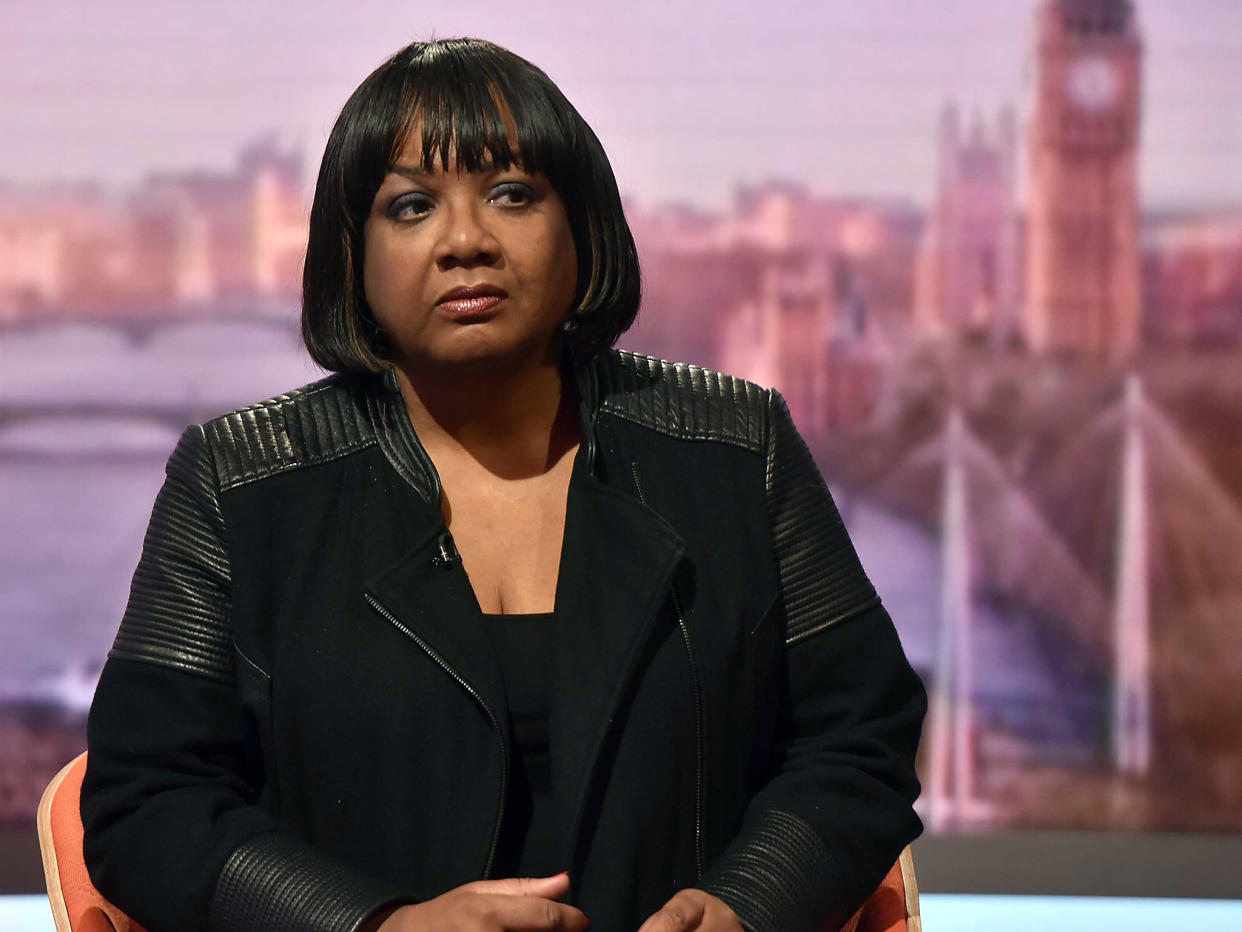We need a Leveson-style inquiry into racist and sexist online abuse

Few politicians attract the level of abuse – personal and political – that Diane Abbott routinely suffers. She has the especially unusual and unenviable distinction of being openly despised by members of her own party as well as her formal enemies across the political spectrum. One Labour MP, Jess Phillips, apparently enjoyed instant celebrity among parliamentary colleagues by telling Abbott to “f*** off” during a meeting, ironically enough, about sexism. Some sisterhood.
The Brexit Secretary, David Davis, got away with making an offensive rugby club-style wisecrack about her looks, as if he were some sort of middle aged Justin Bieber himself. He should have been vilified for it: he was not. Instead Davis was treated like a folk hero.
Some of the insults on social media are undisguised racism, the only merit to them being that they disabuse anyone who fondly thinks (or fears) Britain has moved on from such primitive prejudice and become a multicultural liberal paradise. Sometimes the mainstream press is not far behind the out-and-out racists in its coverage of her.
I always get the impression that some in the media cannot accept that someone like Abbott should be where she is in society. When she says or does something provocative, that is all the excuse they need to do a hatchet job on her.
The Shadow Home Secretary has few protectors beyond her ideological soulmate and former lover, Jeremy Corbyn. Now she wants a parliamentary investigation about the hate politicians receive, and whether it might put women and black and ethnic minority candidates off entering politics. She points, too, to the assassination of Jo Cox last year. We also see the anti-Semitic tendencies of some on the Labour left. They too should face up to what they have been party to.
Abbott is right to call out her attackers, and right to ask the questions she does. But it is difficult to believe that anyone can transform the internet and social media into a world of tolerance, restraint and courtesy. Like many a politician before her, she will have to get used to it, if she can, demoralising and upsetting as it surely is, because it will never be eradicated.
If there are ways of censoring the vast acreage of abuse, racism, sexism, xenophobia and misogyny then we should take them. There are probably things we can do. It is not, though, easy, and has its own obvious problems in curtailing traditional free speech and the right to be offensive.
Let’s take the comments sections.
The websites that run comments under articles have a very difficult task in trying to police the comments that appear. We try to ban offensive words, but this is easily evaded by misspelling or distorting them. We can ban individuals but then they just assume fresh identities. We can make comments sections closed, but that defeats the point of open debate and restricts free speech.
The resources required to ensure political correctness – a good thing, by the way – are disproportionate. We have laws and codes, but they are all too easily dodged. Just take a stroll around the MailOnline or Guido Fawkes to see the sort of stuff chucked at Abbott or Chuka Umunna or Keith Vaz. It is, frankly, sickening racism, these “comments”, the 21st century equivalent of the Nazis’ Der Sturmer.
We could make websites legally liable for what they publish, but at what cost to liberty or the viability of media businesses? As I say, there seem to be no easy solutions, but there may be ways we can be smarter about cleaning up the political toilet graffiti.
There is plenty that Abbott does, says and thinks that make her a tempting target. She has been accused of hypocrisy over the education of her son, of cowardice for ducking a crucial Brexit vote because of a migraine, and of failing to declare her BBC earnings in the Commons Register of Interests. Her policies on public ownership and the economy are obviously too leftist for the bulk of the British press. She generally sticks up for herself and for black people. That annoys some.
In the old days abusers would write a “poison pen” letter or post something nasty to her. They might get her phone number and give her an earful that way. Email serves the same sort of purpose now. Twitter, Facebook and websites, unmoderated and unregulated – pretty much beyond the law even now – make the abuse possible on an industrial scale, and that makes it more dangerous, both to individuals and to all the gains we’ve made to enhance Britain’s tolerance and respect for human rights and dignities.
One of the oddest things about the Leveson Inquiry was how it devoted so little attention to the web. With the parallel argument about “fake news” it is time for a Leveson-style inquiry into the digital media, its rights and responsibilities.
Abbott is right: we do need to examine the digital media and do something about its abuses, if needs be through the law. But, I have to say, no-one should be optimistic about success.

 Yahoo News
Yahoo News 
